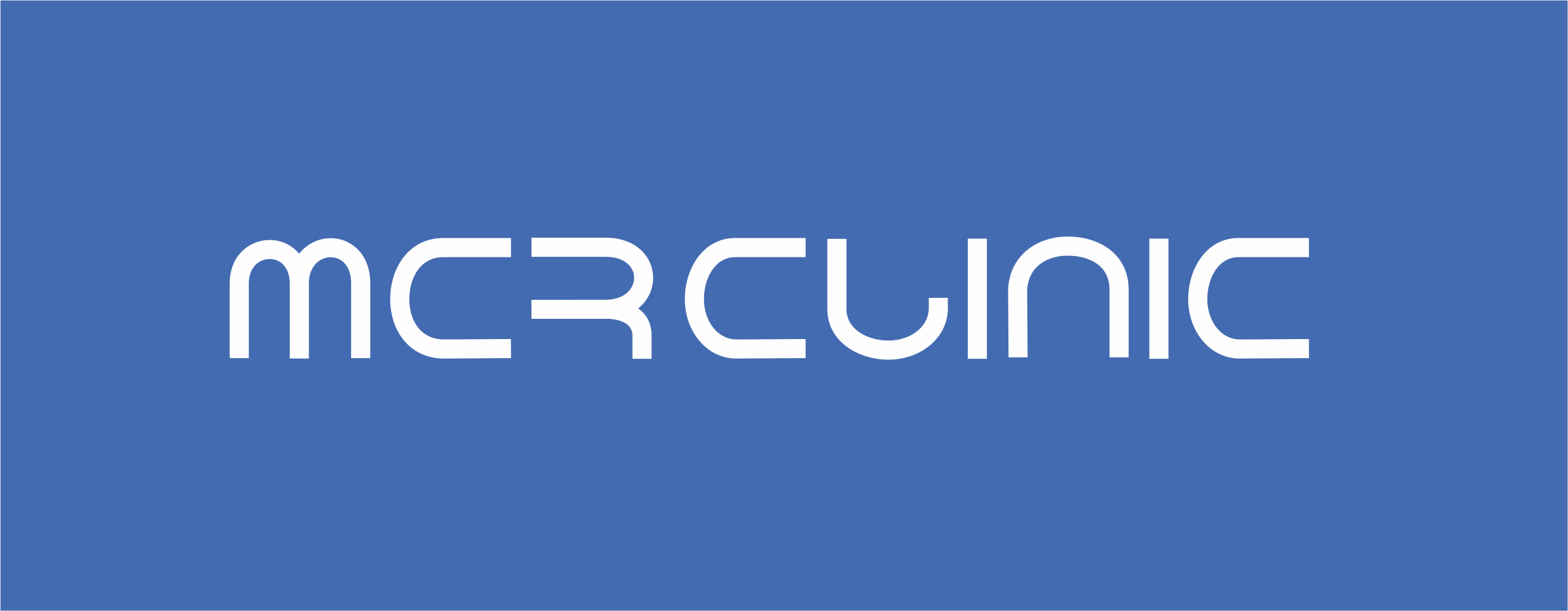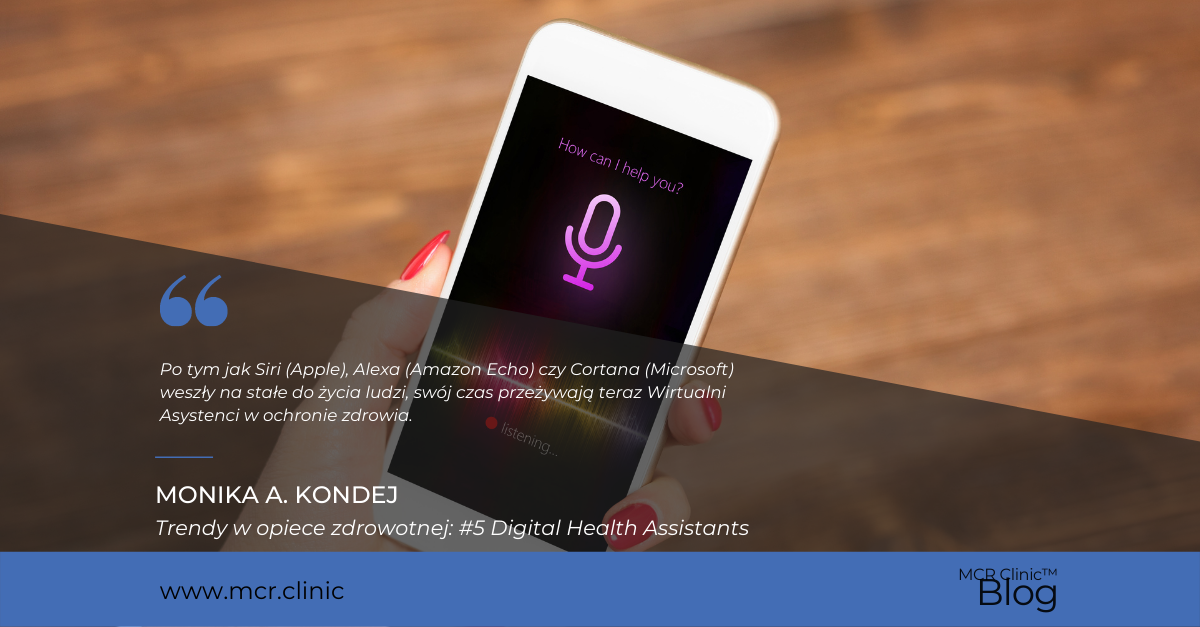The year 2021 brought a real boom of Virtual Assistants services in healthcare. After Siri (Apple), Alexa (Amazon Echo) or Cortana (Microsoft) entered people’s lives permanently, Virtual Assistants in healthcare are now experiencing their time.
The Covid-19 pandemic has driven many health care systems around the world into inefficiency. There is a shortage of hospital beds, a shortage of equipment, and finally – a shortage of doctors, nurses, and support staff. So it stands to reason that virtual assistants are growing in popularity.
Virtual Assistants in Healthcare
Virtual Health Assistants, are mostly in the form of mobile apps, but can also be speech-activated speakers or wearable electronics (which we wrote about some time).
They support healthcare workers with repetitive daily tasks, saving time that can be spent on patient care.
The use of virtual assistants also reduces errors and promotes compliance with procedures.The applications retrieve certain data automatically, at predetermined times, and/or remind you of necessary steps, thus ensuring compliance with procedures.
Data that is automatically retrieved, properly processed and stored is also an important aspect of reporting. As you move away from paper documentation, the assistance of virtual assistants in data collection is invaluable – especially in automatically generating reports.
The Future of Virtual Assistants in Healthcare
All indications are that we will see a spike in the development of voice-based virtual assistants in the near future. **
In the operating room, for example, the operating team could check for airborne pathogens, measure humidity and review disinfection history.
With the use of voice technology in medical devices, it would be possible to perform extremely precise procedures using only speech.
As the authors of the “Voice Technology in Healthcare”, David Metcalf and Teri Fisher, point out, the possibilities are almost endless when looking at technology. The real barrier, however, is the beliefs and skepticism of healthcare professionals. With the Covid-19 pandemic and the digitization of healthcare, however, this skepticism will diminish in the coming years and we can expect to see more solutions emerge.
***
Sources:
*https://www.checkit.net/blog/benefits-personal-digital-assistants-healthcare
**https://www.gehealthcare.com/long-article/what%E2%80%99s-ahead-for-virtual-assistants-in-healthcare
____________________________________________________________________________________




